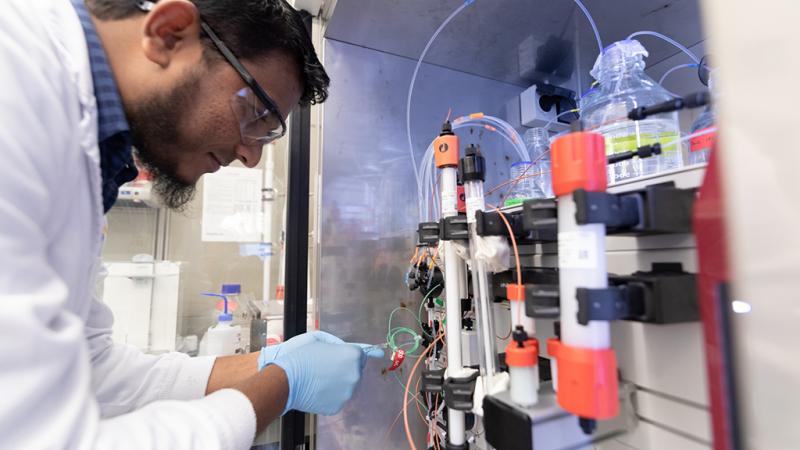© 2019 KAUST
Pathogenic bacteria come alive at the metabolic level when they enter the warmth of the human gut, firing up genes that encode toxins and other compounds harmful to our bodies. A KAUST-led study shows how a critical bacterial protein senses changes in temperature to slacken DNA strands and boost gene expression in diarrhea-inducing bugs.
“Having determined how these bacteria sense that they are inside humans, we could try to conceive of small molecules to perturb this mechanism,” says research scientist Umar Hameed. “Such compounds would block bacteria from adapting to their environment, which would weaken them and facilitate eliminating them.”
Gut-dwelling bacteria that cause food-borne illnesses, including Salmonella, disease-causing strains of E. coli and the cholera pathogen Vibrio cholerae, all use a protein called H-NS to condense their DNA and broadly restrict gene expression. Short for histone-like nucleoid-structuring protein, H-NS forms multiunit complexes that help the microbes stay relatively dormant when free-floating in the environment. However, these complexes must break up for the protein to release its grip on DNA, which then allows the bacteria to thrive within a warm-blooded host, explains group leader, Stefan Arold.
Before coming to KAUST, Arold, who has studied H-NS for more than 15 years, previously determined the three-dimensional shape of part of the protein. While he had shown that its complexes collapse at human body temperature, it wasn’t clear how that happened.
Read the full article


